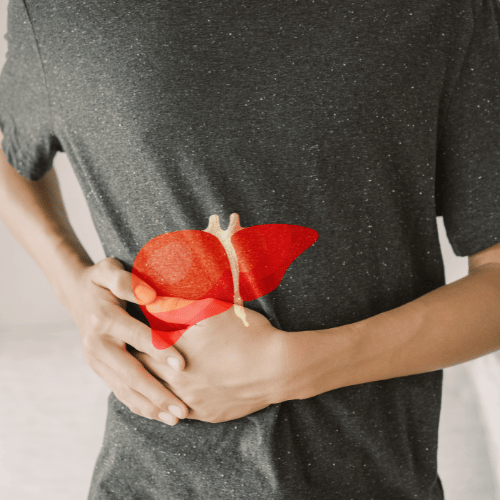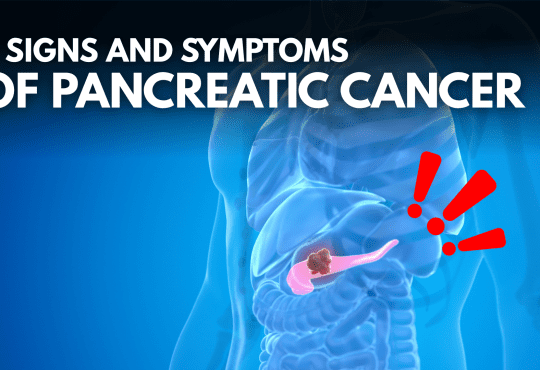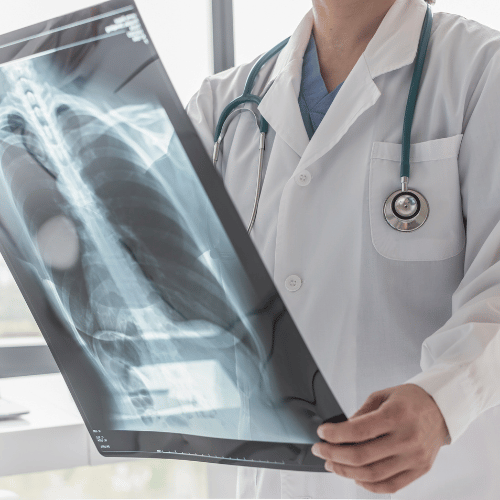
7 Early Warning Signs of Liver Cancer
Liver cancer is a formidable health challenge that often remains cloaked in mystery during its initial stages.
Detecting it can be difficult because the early symptoms are typically vague and easily mistaken for less serious conditions.
However, understanding these early signs is vital for timely medical intervention, which can significantly improve the likelihood of successful treatment and better outcomes.
According to the American Cancer Society, liver cancer is among the leading causes of cancer deaths worldwide, increasing in prevalence.
This makes awareness and education on its early symptoms more important than ever.
Today, we’re diving deep into the seven early warning signs of liver cancer.
Recognizing these signs is not just about spotting the disease early—it’s about empowering yourself with knowledge and taking proactive steps towards your health.
Let’s explore these crucial symptoms that should not be ignored and discuss why they might occur.
Number 7. Unexplained Weight Loss
Kicking off our countdown at number 7 is unexplained weight loss.
One of the more alarming but non-specific symptoms of liver cancer is sudden, unexplained weight loss.
If you find that you’re shedding pounds without any changes to your diet or exercise routine, it could be a sign that something is amiss.
This phenomenon isn’t unique to liver cancer; it’s a common symptom in many forms of cancer and is typically a result of your body burning calories at a higher rate than normal due to the growing cancer cells.
Weight loss in cancer patients can also stem from a loss of appetite, which is another symptom that might occur with liver cancer.
According to the Mayo Clinic, as the liver becomes increasingly compromised by cancerous cells, its ability to function properly is hindered, which can disrupt your metabolism and your body’s ability to process nutrients effectively.
This metabolic disturbance can lead to rapid weight loss and muscle wasting, known medically as cachexia, which is seen in advanced stages of cancer.
If you’re experiencing unexplained weight loss, it’s important to consult with a healthcare provider to rule out liver cancer and other possible causes.
Early detection and diagnosis can significantly improve treatment outcomes.
Number 6. Persistent Fatigue
Next on our list at number 6 is Persistent Fatigue.
Persistent fatigue is not just about feeling tired; it’s a profound exhaustion that doesn’t improve with rest.
This type of fatigue is one of the most common symptoms among liver cancer patients.
While it’s easy to overlook fatigue given our busy lifestyles, when it’s severe and constant, it can be a significant indicator of an underlying problem.
Fatigue in liver cancer can be caused by multiple factors.
The liver plays a crucial role in detoxifying the body, helping to metabolize nutrients, and producing proteins that are essential for energy.
When liver function is compromised by cancer, these processes can be disrupted, leading to an overall feeling of energy depletion.
Furthermore, liver cancer can lead to anemia, another condition known to cause fatigue.
Anemia in liver cancer patients might result from decreased appetite and poor nutrition, or from cancer itself affecting blood cell production in the bone marrow.
Persistent fatigue that’s linked to liver issues is typically more than just feeling sleepy—it’s an overwhelming tiredness that can impair your ability to perform daily activities.
If you experience this level of fatigue, especially if it’s accompanied by other symptoms on this list, it is crucial to seek medical evaluation.
Early detection is key in managing liver cancer effectively.
5. Loss of Appetite or Feelings of Fullness
Ranking fifth on our list, a sudden loss of appetite or experiencing feelings of fullness after eating only a small amount of food can be troubling signs, particularly if these changes are abrupt and severe.
This symptom, known as early satiety, can be an indicator of liver cancer.
The liver plays a critical role in digestion by producing bile, which helps break down fats and prepare them for further digestion and absorption.
When liver function is impaired due to cancer, this process can be disrupted, which might contribute to feelings of fullness and a loss of appetite.
Additionally, liver cancer can cause swelling in the liver, which puts pressure on the stomach and nearby organs, further contributing to a decreased appetite and early satiety.
These symptoms can significantly impact your nutritional intake and overall health.
If you notice that you’re consistently not feeling hungry or that you’re full after eating very little, it could be a sign that your liver is not functioning properly.
Such a drastic change in eating habits is definitely a red flag that warrants a medical consultation.
It’s important to address these symptoms early on with your healthcare provider, as they can provide insights into their potential causes and offer a path forward for necessary testing and treatments.
Early detection and intervention can be crucial for effectively managing liver cancer and improving outcomes.
4. Upper Abdominal Pain
Coming in at number four on our list is upper abdominal pain.
This type of discomfort, particularly when localized on the right side near the liver, is a common and direct signal of liver issues, including cancer.
It’s important not to ignore this pain as it often indicates a significant problem.
The liver is located in the upper right quadrant of the abdomen and plays a vital role in various bodily functions, including metabolism, detoxification, and blood filtration.
When a tumor grows in the liver, it can cause swelling and inflammation, leading to noticeable discomfort or pain in this area.
This pain might be a dull ache that persists or a sharper pain that intensifies during activities that jostle the liver, such as walking or running.
Liver cancer can also cause the liver’s capsule, a thin layer of tissue covering the organ, to stretch, which further contributes to pain.
Additionally, if the cancer has spread to surrounding tissues or organs, or if there is a buildup of fluid in the abdomen (ascites), the pain can become more pronounced and severe.
If you experience persistent or worsening pain in the upper abdomen, it’s crucial to consult with a healthcare provider.
They can perform diagnostic tests such as ultrasounds or CT scans to determine the cause of the pain.
Recognizing and addressing this symptom early can lead to more effective treatment options and potentially better outcomes in managing liver cancer.
Number 3. Nausea and Vomiting
Next on our list, at number three, are nausea and vomiting.
While these symptoms can be common and linked to a variety of health issues, their persistent occurrence without an obvious cause can be particularly concerning in the context of liver cancer.
Nausea and vomiting in liver cancer patients may result from the liver’s decreased ability to process toxins and waste products.
As the liver becomes compromised by cancer, it struggles to effectively filter out substances that are typically harmless when processed correctly.
This buildup can trigger the body’s defense mechanism, leading to nausea and the urge to vomit as the body attempts to expel these substances.
Additionally, if a tumor grows large enough, it can physically press on the stomach and other digestive organs.
This pressure not only disrupts normal digestion but can also cause discomfort and provoke nausea and vomiting.
Furthermore, liver cancer can lead to changes in metabolism and blood chemistry, exacerbating these digestive symptoms.
If you or someone you know experiences unexplained, persistent nausea and vomiting, it’s important to seek medical advice.
These symptoms, especially when they don’t have a clear trigger, can indicate serious underlying conditions like liver cancer.
Early diagnostic efforts are essential for effective treatment and potentially improving outcomes.
Number 2. Jaundice
As we approach the top of our list, jaundice stands out as a significant and visible warning sign of liver cancer.
Jaundice manifests as a yellowing of the skin and the whites of the eyes, and it occurs when there is a buildup of bilirubin in the blood.
Bilirubin is a waste material in the blood that normally passes through the liver to be processed and eliminated.
In liver cancer, this process can be disrupted due to the liver’s impaired ability to function properly.
Tumors in the liver can block the bile ducts, preventing bilirubin from being excreted as bile.
As bilirubin levels in the blood increase, the skin and eyes take on a yellow tint.
Besides being a direct indicator of liver dysfunction, jaundice can also be associated with itching (pruritus) due to the accumulation of bile salts in the skin, further complicating the discomfort for the patient.
Jaundice is a clear sign that the liver is under significant stress, either from cancer or other liver diseases such as hepatitis or cirrhosis.
If you notice any yellowing of your skin or eyes, it’s crucial to contact a healthcare provider immediately.
Jaundice is often more visible in natural daylight, and early detection through simple observation can lead to timely and potentially life-saving treatments.
1. Swelling in the Abdomen
Topping our list is ascites, the medical term for the buildup of fluid in the abdomen, which can lead to significant swelling and discomfort.
This condition is frequently associated with liver cancer, as the disease can severely impact liver function and disrupt the body’s ability to regulate fluids.
Ascites occurs when the liver’s secretion of albumin decreases.
Albumin is a protein that helps maintain the oncotic pressure in the blood vessels, which is necessary to keep fluid from leaking out.
When albumin levels drop due to liver damage, fluid leaks into the abdominal cavity, causing swelling.
Additionally, liver cancer can increase the pressure in the portal vein—the blood vessel that carries blood to the liver—further exacerbating fluid accumulation in the abdominal area.
The presence of ascites is not only uncomfortable but also indicates advanced liver disease or liver cancer.
Symptoms accompanying ascites may include increased abdominal size, a feeling of heaviness, difficulty breathing due to pressure on the diaphragm, and potential susceptibility to bacterial infections.
If you experience sudden or progressive abdominal swelling, it’s important to seek medical evaluation as soon as possible.
Diagnosing and managing ascites early can improve comfort levels and overall treatment outcomes.
Treatment might involve medications to reduce fluid buildup or procedures to drain the fluid and relieve pressure.
And there you have it, seven crucial early warning signs of liver cancer, from unexplained weight loss to the significant swelling caused by ascites.
Each of these signs, while possibly indicative of other conditions, requires prompt attention if they persist without a clear cause.
Recognizing and responding to these symptoms early can be key in diagnosing liver cancer at a stage when it is more treatable and the outcomes can be significantly improved.
If you or someone you know is experiencing any of these symptoms, it’s critical to consult with a healthcare professional.
Early detection is one of the most powerful tools we have against liver cancer. Don’t wait—taking action now could make a difference in treatment options and recovery.
Stay informed and proactive about your health.
Early signs are not just warnings; they are an opportunity to take control and potentially change the course of your health journey.
Remember, taking care of your health is the best investment you can make.
Thank you again for joining us, and stay healthy!









